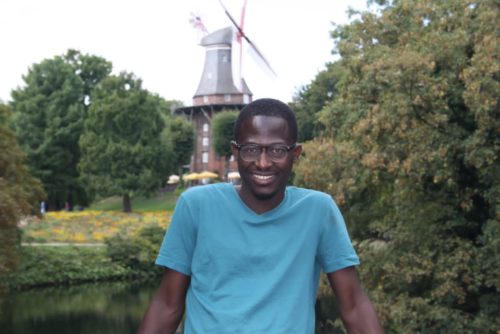OPINION: A Call for Constructive Dialogue on the Galamsey Strike


Dr. Owusu Fordjour Aidoo, Postdoctoral Research Associate, USA Former UTAG President
University Teachers Association of Ghana (UTAG) has long been a steadfast advocate for both the welfare of its members and the advancement of national education. However, the recent strike aimed at banning galamsey (a term meaning “gather them and sell”) raises important questions about its long-term effectiveness. Drawing on insights from Professor Isaac Boadi, a member of UTAG, there are several compelling reasons why the strike should be called off in favor of dialogue and collaboration with the government.
As Professor Boadi highlights, universities should be at the forefront of generating solutions to national problems. Rather than resorting to strikes as the first course of action, academia’s role is to research and offer well-informed strategies for addressing challenges like galamsey crisis. While UTAG’s commitment to fighting galamsey is laudable, the strike will not resolve this issue. Given that the government has already implemented measures, though more needs to be done, constructive dialogue is needed to resolve the galamsey crisis.
Strikes, particularly prolonged ones, put a strain on relationships between key stakeholders, including the government and the academic community. Although UTAG’s concerns about galamsey are legitimate, continued striking damages the association’s credibility and weakens the dialogue process. By calling off the strike, UTAG would signal a willingness to collaborate constructively with the government, potentially opening the door to more meaningful responses to its demands.
There are diverse opinions within UTAG about the strike. A recent petition by a faction within UTAG has opposed the ongoing industrial action, revealing internal divisions. Acknowledging these democratic tensions and calling off the strike would show respect for the differing views within the association, thereby fostering unity and improving internal cohesion. Moreover, engaging in dialogue would reflect UTAG’s ability to reconcile these internal differences for the collective good.
While strikes are an important advocacy tool, they do not offer a sustainable solution to the galamsey crisis. Calling off the strike would allow UTAG to explore innovative ways to achieve its objectives without negatively impacting students, who bear the brunt of these disruptions. Constructive negotiation with the government, grounded in goodwill, would not only fulfill UTAG’s professional responsibilities but also establish a precedent for more effective engagement in the future.
One key outcome of ending the strike could be a call on the government to set up an environmental research fund. Non-governmental organizations should also create a research fund to augment
government efforts on environment-related issues. These initiatives would enable researchers to develop sustainable technologies that allow mining to continue in an environmentally friendly manner. Such an initiative would align UTAG’s goals with broader national interests, offering a tangible contribution to the fight against galamsey through scientific and technological innovation.
While UTAG’s concerns are valid, the strike is counterproductive to its goals. Engaging with the government through dialogue, research-based proposals, and democratic deliberation would provide a more sustainable path forward for both the association and the country. We therefore use this opportunity to urge UTAG to immediately consider calling off the strike and to resort to a more sustainable approach to the galamsey crisis.
Dr. Owusu Fordjour Aidoo
(Former President: UTAG-UESD (University of Environment and Sustainable Development: +1 509 432 4625))
Dr. Jonathan Osei-Owusu
(Lecturer: University of Environment and Sustainable Development: 0240838382/0262628880)





